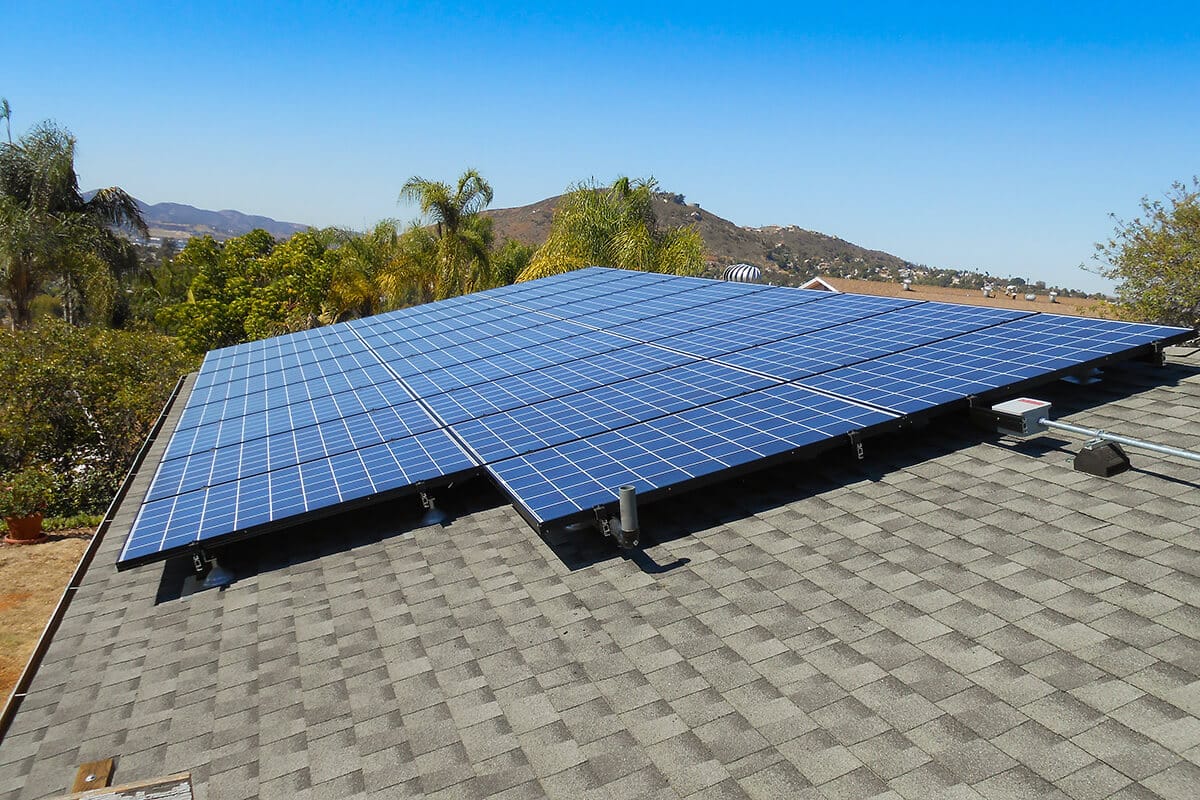Do Solar Panels Get Hot? How Temperature Affects Solar Panels



With an annual growth rate of solar energy capacity averaging 25% during the last five years, solar energy has become the fastest growing renewable power source. However solar panels represent a considerable change from traditional methods and homeowners looking to invest in a solar system will naturally have questions related to solar panel heat and efficiency. Here we aim to answer some of the more common questions related to how external temperature can affect solar panel efficiency.
The short answer is yes, and they get hotter with more sunshine and warmer climates. A solar panel absorbs sunlight and converts that sunlight to electricity. However, not all of the sunlight that is absorbed will be converted into electricity. Rather, some of the sunlight that is absorbed will be converted into heat and, as a result, the solar panel will heat up. High ambient temperatures can reduce the production of energy. However, tests for solar panels subject them to temperatures that range between -40 °Fahrenheit to 185 °Fahrenheit, conditions typically much more extreme than occur in California.
As mentioned above, some of the sunlight absorbed by solar panels will be converted into heat and cause the solar panel’s temperature to rise. If the temperature rises too much, it can negatively affect the solar panel’s efficiency. A solar panel's temperature coefficient indicates how much a solar panel's efficiency will decrease as the panel gets temperature rises. Solar panels produce maximum efficiency between 59°F and 95°F. As the temperature rises, the efficiency will drop and the solar panel will produce less energy. How much the efficiency drops is dependent on the type of solar panels.
Warmer temperatures reduce photovoltaic cells' energy production, and panel manufacturers use the temperature coefficient to predict the loss of efficiency for each degree above 25 °C or 77 °Fahrenheit. In general, the temperature coefficient of a solar panel will tell you how your solar panel’s efficiency will be affected when the solar panel gets hotter. More specifically, the coefficient predicts the decrease in efficiency for every degree above 25°C (or 77°F). A typical temperature coefficient is 0.5%/°C. So, if on a hot day your solar panel heats up to 35°C, you can expect your solar panel’s efficiency to drop by around 5%.
Solar panels do not heat up a home and can actually help to (slightly) cool a home. In a home without solar panels, the sunlight will directly hit the roof causing the interior of the home to get hotter. But with solar panels on the roof, they will absorb the sunlight first and convert some of that sunlight into electricity, meaning that not as much of the sunlight’s energy reaches the home’s roof, and in effect, the interior of the home will not heat up as much as a home without solar panels. Another benefit includes an increase in a home's total energy efficiency by preventing heat from escaping into cooler evening temperatures.
A fancy name for ordinary air temperature, the ambient temperature of the air affects the efficiency of photovoltaics or solar cells. As mentioned above, the efficiency of solar panels will decrease as the panels get hotter. So if the ambient temperature is 100°F, the solar panel’s efficiency will be slightly lower than on a day with an ambient temperature of 80°F. SFGate notes that power production results from the sun's rays, but weather can lower the energy output. While solar cells perform reliably at a range of temperatures, they achieve maximum efficiency when they function below 77 °Fahrenheit.
Solar panels depend on the sun's light to produce energy, and hot or cold temperatures do not influence it. Energy production occurs more efficiently in cold, sunny environments while efficiency diminishes in higher heat zones. Solar panels resemble all electric appliances in the ability to work better in colder weather.
While some solar panels may reach 22 percent efficiency or even a little more, most produce a level between 15 and 20 percent. Some experimental solar panels can even reach up to 40% efficiency. Understandably, a more efficient panel produces more electricity than a less efficient one. Does that mean you should choose the most efficient solar panel for your home or business? Not necessarily.
While efficiency is an important factor, how much area you have available for the solar panels and the price of the solar panels are also very important factors in deciding which panel is best for you. If you have plenty of room available, a less efficient solar panel can produce just as much electricity as a high-efficiency solar panel. The less efficient solar panel will be bigger and take up more space, but it will also likely cost less than the more efficient panel.
Still curious about solar panels? We invite you to browse our Frequently Asked Questions for more answers, or talk with a solar panel specialist today!